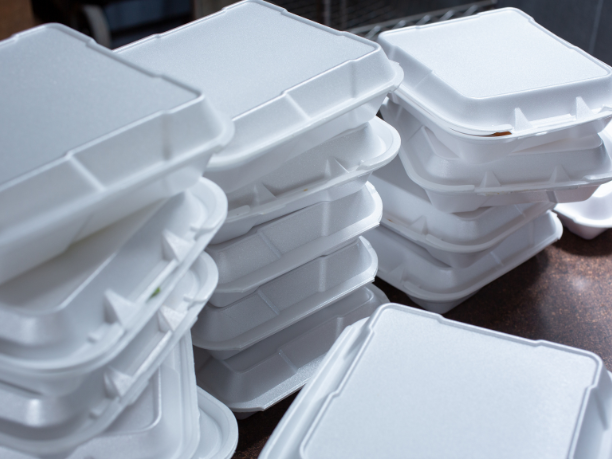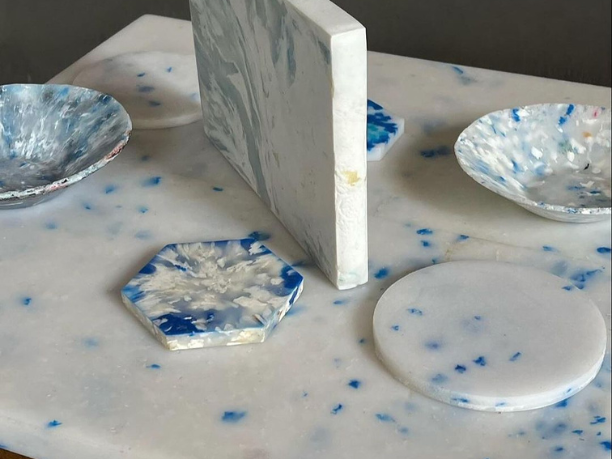Greetings, eco-warriors! Ever felt like a deer in headlights standing before an array of multicoloured recycling bins? Don’t worry. You’re not alone. If recycling in Singapore feels as tricky as navigating the MRT at peak hour, fret not! Our city-state might be small, but we’re taking giant leaps in tackling climate change and promoting sustainable living.
1. Why Recycle, You Ask?

Well, imagine the Earth as a jigsaw puzzle. Each piece, no matter how small, has a critical role. That includes us and our recycling efforts, which may seem like tiny drops in the ocean, but trust me, they ripple out to make a significant impact.
2. Singapore’s Current Recycling Initiatives
Let’s take a peek at our nation’s efforts. We have a recycling program run by our own National Environment Agency that’s as well-oiled as our favourite char kway teow stall. The cornerstone of this initiative is the humble blue bin. These blue recycling bins are as ubiquitous as bubble tea shops and are your go-to solution for many recyclable materials.
3. What Exactly Are Blue Bins In Singapore?
Now, let’s turn to the star of our recycling show – the blue recycling bin. Picture it as a hungry beast eager to gobble up your recyclable items. But, like a discerning foodie, it’s fussy about what it consumes. So, it’s our job to feed it appropriately.
4. What Goes Into The Blue Recycling Bins?
5. Common Items To Avoid When Recycling
Remember our picky eater analogy? Well, there are items our blue bin finds as unappetising as durians to some of us. Here’s a short list:
-
Pizza Boxes: Even though they’re made of cardboard, pizza boxes cannot be recycled due to food waste residue.
-
Paper Towels: While seemingly innocent, paper towels are usually contaminated with food waste or cleaning products and thus cannot be recycled.
-
Pyrex Glassware and Light Bulbs: These are the black sheep of the glass family and must be excluded from the blue recycling bins.
-
Plastic Bags: Contrary to popular belief, your everyday plastic bag is a recycling no-no.
6. Recycling Beyond The Blue Bin
What about the items that don’t belong in the blue bin but aren’t quite meant for general waste either? These items find solace in the different waste streams of Singapore’s recycling landscape.
-
E-Waste: Your electronic waste, or ‘e-waste’, comprising old gadgets and appliances, find its home in e-waste bins scattered around the island. Imagine these as retirement homes for your faithful old devices that have served you well.
-
Bulky Items: You know those bulky items you can’t just stuff into a bin? Like that old mattress or the chair that’s seen better days? There are specific collection points for these, so they won’t languish in landfill oblivion.
-
Food Waste: Food waste has its destiny in the form of composting or specific food waste recycling programs. Think of it as the circle of life, Lion King-style, turning yesterday’s leftovers into tomorrow’s nutrient-rich soil.
-
Batteries and Light Bulbs: These have special bins too. It’s a bit like a VIP club, only for used batteries and spent light bulbs.
7. How To Recycle In Singapore
So, you’ve done your bit. You’ve deposited your recyclables into the blue bin, but what happens next? Like a magician’s trick, our recyclables embark on a secret journey. The curtain lifts at the materials recovery facilities (MRFs).
8. Useful Recycling Tips
So, now that you know about recycling in Singapore, let’s go over some helpful tips. Think of these as your recycling cheat codes.
Know Your Recyclables
Knowledge is the first step on the road to recycling. Before you dive headfirst into the world of recycling, spend some time getting to know your recyclables.
Rinse And Dry
Before your recyclable goods head to the materials recovery facility, they must be rinsed and dried. That soda can? Wash it to remove any sticky residue. The pasta sauce jar? A quick rinse will do the trick. You don’t want any leftover food particles hitching a ride on your recyclables, do you?
No Need To Bag Your Items
The MRFs, the grand sorting halls of our recycling kingdom, prefer their materials loose, just as you’d like your teh tarik. Bagging recyclables is akin to presenting a magic show with the tricks already revealed—no fun, right? So, loose it is! Your recyclables aren’t shy; they don’t need a bag to hide in.
When In Doubt, Throw It Out
Imagine standing at the bin, holding a potato chip bag in one hand and a piece of wrapping paper in the other, frozen in confusion. Can these be recycled? If you’re unsure, it’s better to dispose of them as general waste.
It’s like that old riddle: If a tree falls in a forest and no one is around to hear it, does it make a sound? If a questionable item lands in the blue bin, is it recycled? The answer might surprise you.
Have you got old clothes lounging in your closet? Well, they could be strutting their stuff in someone else’s wardrobe.
Before you toss them into the recycling bin, consider donating clothes still in good nick. Not only are you extending the life of these clothes, but you’re also bringing a smile to someone’s face. It’s like matchmaking but for clothes—your pre-loved jeans might be the perfect fit for someone else!
Who says recycling has to be boring? Get your creative juices flowing and look for ways to upcycle items around your home. That empty jam jar? It could be your next DIY candle holder. Old magazines? They can be transformed into colourful coasters.
By thinking outside the box, you can give your old items a new lease on life and have fun!
Now that you’re armed with our top tips let’s turn our attention to the stars of the recycling show: recyclable materials.
Newspapers, magazines, brochures, and even your unwanted love letters are welcome. However, remember that not all paper products are created equal. Wrapping paper, for instance, is a party pooper due to its glossy finish and is better off in general waste.
Plastic packaging, bottles, and containers are the guests of honour at our recycling party. In Semula, we are able to recycle Type 2 Plastics which includes plastic bags.
But do remember, some uninvited guests, like potato chip bags and other unclean plastic waste, should be kept away—they’re better suited for the general waste bin.
Metal
Items made of metal like drink cans, food cans, and even that empty tin of biscuits you got last Christmas are all suitable for recycling, so long as they’re in seemingly good condition. Remember to rinse and dry them before chucking them into one of those blue bins.
Glass
You can recycle glass bottles and containers, but our blue bin doesn’t like their distant relatives. Keep Pyrex glassware, mirrors, and light bulbs out of the blue bin.
And there you have it—the A to Z of recycling in Singapore. Navigating the colourful world of recycling might seem as confusing as trying to order at a hawker centre for the first time, but with these tips, you’ll be a recycling guru in no time.
Rechargeable batteries can indeed be recycled in Singapore, and there are several e-waste recycling programs available to help with this. For instance, the RENEW (REcycling Nation’s Electronic Waste) Program, a collaborative initiative by DHL, StarHub, and TES, allows people to drop off their e-waste, including rechargeable batteries, at various designated bins throughout the country.
Are Plastic Bottles Recyclables?
Plastic bottles are recyclable but must be cleaned and properly disposed of in the designated recycling bins.
What Has Singapore Done To Reduce Plastic Waste?
Singapore has implemented several initiatives to reduce plastic waste, including the nationwide “Say YES to Waste Less” campaign, promoting reusable shopping bags, and encouraging businesses to reduce single-use plastics.
How Does Singapore Recycle Food Waste?
What Is The Recycling Rate In Singapore?
According to the NEA, Singapore’s overall recycling rate was up 2% in 2022. The city-state was able to recycle 57% of its total waste in 2022, a significant increase from 55% in the previous year.
Are There Penalties For Not Recycling In Singapore?
There are no direct penalties for not recycling in Singapore, but some housing estates have implemented measures to encourage recycling.
Can I Recycle Tetra Pak Cartons?
Yes, Tetra Pak cartons can be recycled in Singapore, but they must be rinsed and flattened before disposal in the appropriate recycling bins.
What Happens To General Waste?
General waste not sorted for recycling typically ends up in incineration plants, and the ash is sent to Singapore’s only landfill site, Pulau Semakau.


